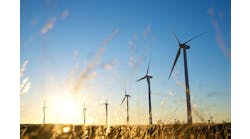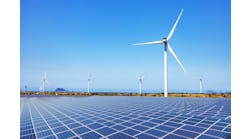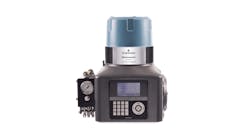While it can seem like going green will require all kinds of rip-and-replace changes to legacy processes, many of these fears are unfounded because sustainable practices and new technologies can often be integrated without disrupting what's already in place.
For example, as part its plan to transform into a net-zero emissions company by 2050, Repsol reports that its new biofuels plant in Cartagena, Spain, will achieve an annual production capacity of 250,000 tons of hydrobiodiesel, biojet fuel, bionaphtha and biopropane. The plant will also produce advanced biofuels from recycled raw materials, which will be used in road transportation and aviation. These advanced biofuels will reportedly facilitate the reduction of CO2 emissions by 900,000 tons per year.
Taking a new route
“Repsol is promoting a new technological route that will be key in our path towards carbon neutrality," says Josu Jon Imaz, CEO at Repsol. "This initiative will be incorporated into projects we've already implemented in energy efficiency, low-emissions electricity generation, green hydrogen, circular economy, synthetic fuels, and CO2 capture, use and storage.”
This article is part of a series on industrial sustainability. Read more here.
To achieve efficient, sustainable and low-emissions operations, Repsol adds the biofuels plant will implement an integrated control and safety system (ICSS) from Honeywell, as well as its emergency shutdown (ESD) and fire and gas (F&G) systems, DCSs and HMIs. The ICSS will include Honeywell's Enhanced High-Performance Process Manager (EHPM), a process-connected device on the Enhanced Universal Control Network (EUCN) that provides regulatory control and sequence operations; Safety Manager SC, a modular, fault-tolerant safety system integrating safety processes, including F&G and ESD functions; and Experion Orion Console, an advanced HMI console enabling faster operator response, reduced fatigue, and increased situational awareness.
Build off of baselines
"Most companies, but especially publicly traded ones, are focusing on sustainability. They're asking what they can do, which begins with establishing a baseline," says Jason Urso, CTO at Honeywell. "Similar to many companies, we're using the Scope 1 and Scope 2 emissions classifications. The first determines what we're combusting and what may be leaking onsite, while the second determines what types of energy we're purchasing and how to address them.
"For example, we look at Honeywell's natural gas usage and emissions, but we also look at the combustion and energy used by suppliers to provide us with that natural gas. Next, we start to use these baselines to reduce emissions by replacing regular motor drives with variable-speed drives (VSD), and replacing leaky valves. However, that doesn't move the needle much, so we have to look closer at addressing our combustion and the combustion involved in the energy we buy."
Urso reports that Honeywell and its customers can use their emissions baselines to further examine the types of fuel they purchase, the efficiency of their burners and other factors, and then run energy effectiveness studies to show which advanced control optimization strategy they should adopt.
"These efforts can help many plants achieve 5-10% gains in efficiency, but they don't have to stop there," adds Urso. "Leak detection and remediation (LDAR) projects can find product losses, identify emissions, and improve safety, too. This is all low-hanging fruit. Users can even employ Honeywell UOP's carbon capture and sequestration onsite and in pipelines, or reinject CO2 at wellheads. They can do these sustainability improvement projects and gain all their benefits without big capital expenditures."
However, to make a really big dent in emissions and larger leaps in sustainability, Urso adds that companies should consider transitioning to other fuels. This can include moving from traditional natural gas and methane to adding hydrogen, which can reduce emissions by 20%, or eventually switching to all hydrogen, and making steam with a methane reformer or using only renewable sources.
"We can help with all these sustainability efforts because Honeywell's thermal solutions business already has a burner than can use a range of fuel from natural gas to pure hydrogen and the controls they need do it efficiently," explains Urso. "Likewise, if users are transitioning to solar and wind, they'll need battery storage and control algorithms, and we can provide them, too."






